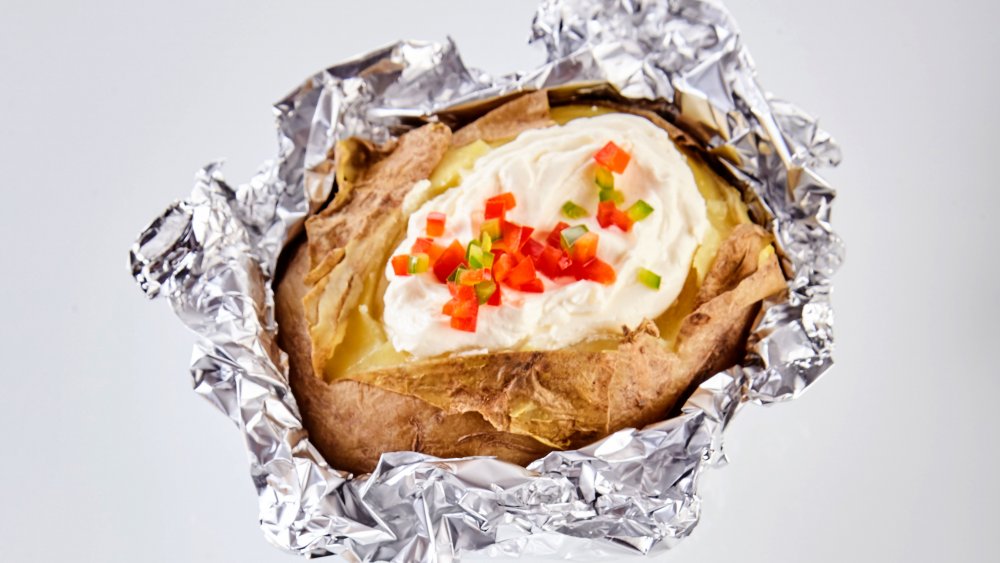The Real Reason You Shouldn't Bake A Potato In Foil
If you grew up with your mom wrapping potatoes in aluminum foil, then cooking them to oblivion, you are not alone. This common cooking method is so, well, common, it may not even enter one's mind that there is a problem with it. And yet, according to Dr. Potato from the Idaho Potato website (yes, there is such a person), wrapping potatoes in foil should be outlawed. He's that adamant that the potato practice stop. But why?
Apparently, not only does baking potatoes in foil diminish the taste, but it can also be dangerous. Say what?
That's right; if you place a foil-wrapped tater in the fridge post-meal, botulism bacteria can grow (via State Food Safety). That sounds like something worth skipping. But what is the optimal way to bake a potato? And is baking this dinner staple in foil really so awful?
Why baking a potato in foil is foolish
According to Dr. Potato (sorry, but how much do you love that name?), the starch in question is about 80 percent water. Therefore, when you bake a potato in foil, what you are really doing is trapping the water, and yielding a soggy side dish.
Another drawback to baking a potato in foil is that you can't readily see if you are overcooking, or worse, burning your dinner. Dr. P is also intent on debunking a popular myth: If you bake a potato in foil, it does not decrease baking time. Finally, you are wasting money on a cooking tool you do not need.
To prepare the perfect baked potato, aim for a crispy outside and soft inside (via The Kitchn). You'll heat the oven to 425 degrees, clean your potatoes, brush them with olive oil, season with salt and pepper, and prick them a few times with a fork so heat can escape. Then, either bake 'em directly on the oven rack, or on a baking sheet for about an hour, flipping the taters every 20 minutes. Top, and enjoy!

